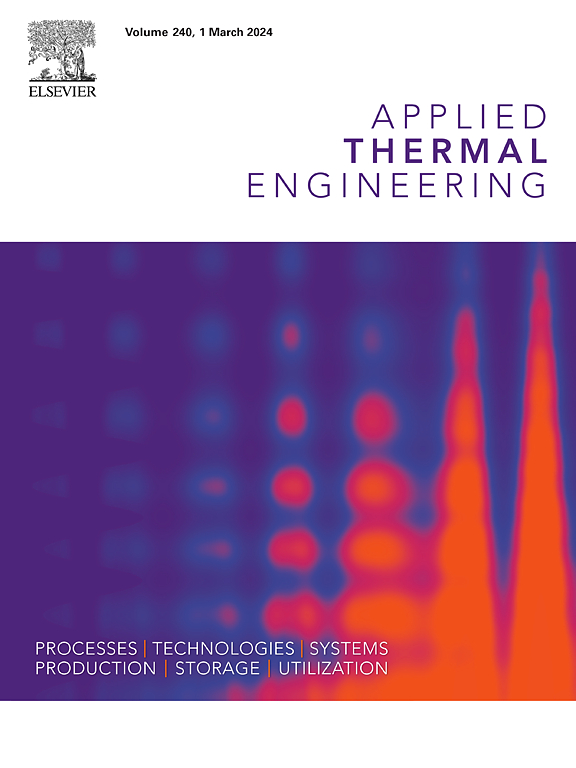Comprehensive thermodynamic, environmental, and economic analyses of a modified waste heat recovery process for a gas turbine cycle producing power, cooling, and hydrogen
IF 6.1
2区 工程技术
Q2 ENERGY & FUELS
引用次数: 0
Abstract
Gas turbine cycles generate significant waste heat, and recovering this heat can lead to higher efficiency and valuable by-products. The current study introduces an effective trigeneration setup for power and hydrogen production, along with the gasification of liquid natural gas. This setup includes a gas turbine cycle integrated with a transcritical CO2 power cycle, an organic Rankine cycle, and a proton exchange membrane electrolyzer. The setup’s performance is analyzed using energy, exergy, environmental, and economic approaches. The exergy analysis brings out a total exergy destruction rate of 138592 kW, and reveals that the highest irreversibility occurs in the gas turbine cycle, accounting for about 70.6 % of the total exergy destruction. The overall energy and exergy efficiencies of the setup are 46.69 % and 40 %, respectively. The cost of hydrogen production is estimated at about 4.35 $/kg, while the energy production cost is 21.81 $/GJ. From an environmental perspective, the setup’s CO2 footprint is about 0.423 kg/kWh, which is 56.18 % lower compared to hydrogen production via coal. The findings of this study underscore the significant potential of integrating advanced cycles and systems for enhancing the efficiency and sustainability of energy production. The proposed trigeneration setup not only improves energy and exergy efficiencies but also offers substantial environmental benefits, aligning with the goals of reducing greenhouse gas emissions and promoting cleaner energy alternatives.
求助全文
约1分钟内获得全文
求助全文
来源期刊

Applied Thermal Engineering
工程技术-工程:机械
CiteScore
11.30
自引率
15.60%
发文量
1474
审稿时长
57 days
期刊介绍:
Applied Thermal Engineering disseminates novel research related to the design, development and demonstration of components, devices, equipment, technologies and systems involving thermal processes for the production, storage, utilization and conservation of energy, with a focus on engineering application.
The journal publishes high-quality and high-impact Original Research Articles, Review Articles, Short Communications and Letters to the Editor on cutting-edge innovations in research, and recent advances or issues of interest to the thermal engineering community.
 求助内容:
求助内容: 应助结果提醒方式:
应助结果提醒方式:


